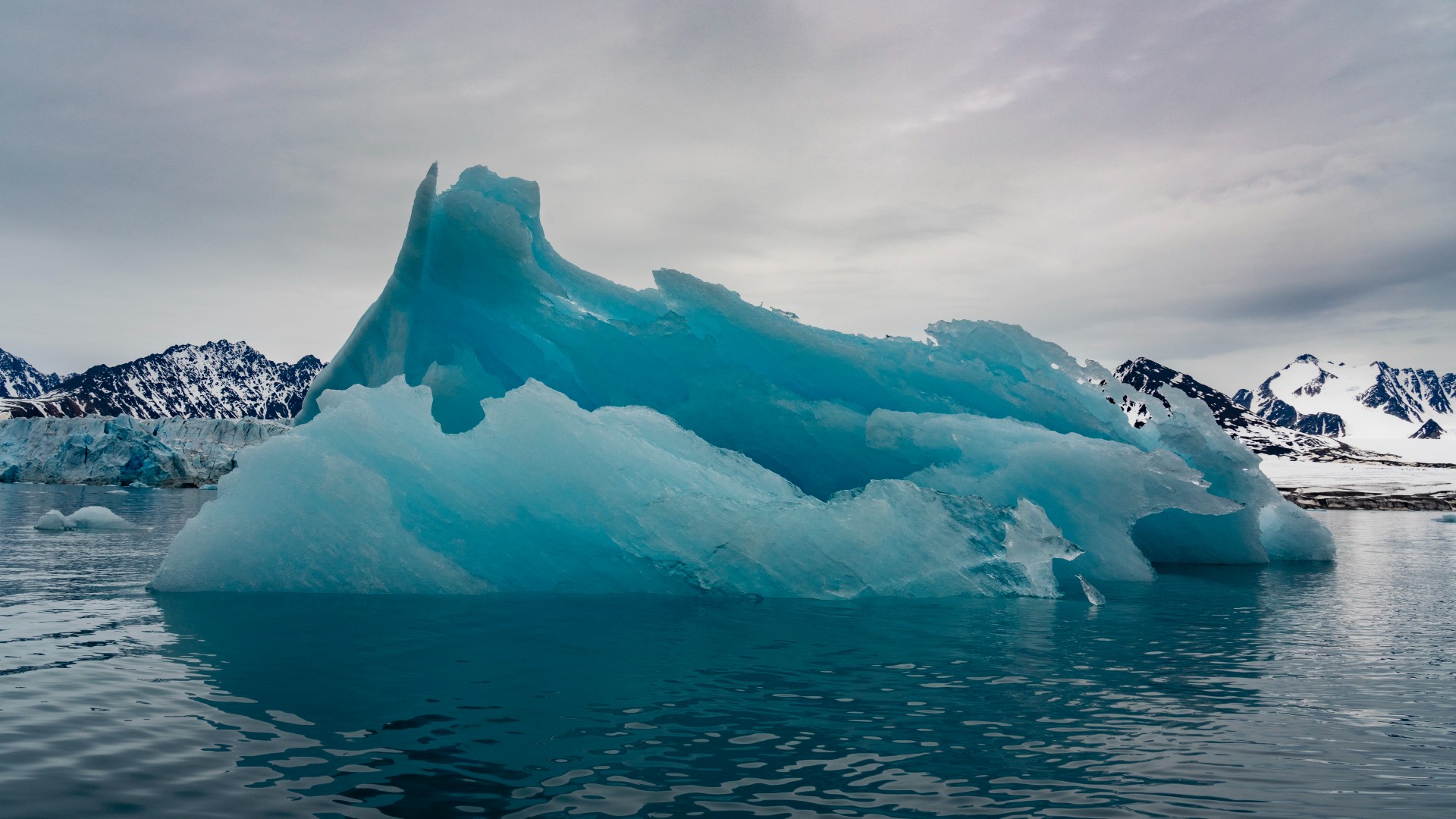World's oldest glacier dates to 2.9 billion years ago, research finds
Ancient glacier sediment may be 2.9 billion years old.

Get the world’s most fascinating discoveries delivered straight to your inbox.
You are now subscribed
Your newsletter sign-up was successful
Want to add more newsletters?

Delivered Daily
Daily Newsletter
Sign up for the latest discoveries, groundbreaking research and fascinating breakthroughs that impact you and the wider world direct to your inbox.

Once a week
Life's Little Mysteries
Feed your curiosity with an exclusive mystery every week, solved with science and delivered direct to your inbox before it's seen anywhere else.

Once a week
How It Works
Sign up to our free science & technology newsletter for your weekly fix of fascinating articles, quick quizzes, amazing images, and more

Delivered daily
Space.com Newsletter
Breaking space news, the latest updates on rocket launches, skywatching events and more!

Once a month
Watch This Space
Sign up to our monthly entertainment newsletter to keep up with all our coverage of the latest sci-fi and space movies, tv shows, games and books.

Once a week
Night Sky This Week
Discover this week's must-see night sky events, moon phases, and stunning astrophotos. Sign up for our skywatching newsletter and explore the universe with us!
Join the club
Get full access to premium articles, exclusive features and a growing list of member rewards.
Evidence of the world's oldest glacier is hiding near South Africa's gold fields, a new study reports. The glacial sediments date back 2.9 billion years, according to the researchers, who published their findings on June 13 in the journal Geochemical Perspectives Letters.
For their study, the scientists unearthed shale deposits and analyzed core samples from field sites in northeastern South Africa that are part of the Pongola Supergroup — a thick succession of volcanic and sedimentary rocks located that formed in the Mesoarchaean era (3.2 billion to 2.8 billion years ago).
"We found extremely well-preserved glacial deposits close to the gold fields of South Africa," study co-author Ilya Bindeman, professor of isotope geochemistry and volcanology at the University of Oregon, said in a statement. "This is one of the few areas which remain fairly intact and unchanged from the early Earth."
In the past, other researchers have uncovered some physical samples that suggest ancient glaciation in this region. However, evidence of glaciation during this era billions of years ago is hotly debated.
Related: Melting glaciers reveal 1,700-year-old weapons used by reindeer hunters
To investigate, the scientists gathered sedimentary rock samples in the field from the Kaapvaal Craton — an ancient rock body located in the southeastern region of South Africa that contains deposits from the Pongola Supergroup. They also analyzed core samples from the same region that were contributed by the AngloGold-Ashanti mining company. Within these samples, the researchers discovered the world's oldest known glacial moraines, which are "basically the debris left by a glacier as it gradually melts and contracts," Bindeman said.
To determine the climatic conditions present at the time the sediments formed, the scientists used a technique called triple oxygen isotope analysis, in which they measured three different forms — or isotopes — of oxygen present in the sediment. They found that the level of certain isotopes in their samples matched those common in an icy climate.
Get the world’s most fascinating discoveries delivered straight to your inbox.
The presence of this glacial material could offer clues into Earth's climate and geography during the time period. One theory is that this area of South Africa may have been close to one of the poles 2.9 billion years ago, the study authors say.
"Another possibility is that the whole Earth was in a 'snowball Earth' period, when low atmospheric concentrations of [the greenhouse gases carbon dioxide and methane] led to a 'reverse greenhouse effect,' causing much of the planet to freeze," study co-author Axel Hofmann, an associate professor in the Department of Geology at University of Johannesburg in South Africa, said in the statement. "If so, this would be the earliest such global cooling period recorded."
While these theories may be possible, more research needs to be done to truly understand the world's climate billions of years ago, according to Andrey Bekker, an associate professor of geology at the University of California, Riverside who was not involved in the research.
"It's incremental progress towards sort of understanding [these] early Earth environments, climatic changes in the early history of Earth, and so on," he told Live Science. But he added that "we don't know what was the extent of this cold climate," — whether it was just local or extended to low latitudes around the world.

Kiley Price is a former Live Science staff writer based in New York City. Her work has appeared in National Geographic, Slate, Mongabay and more. She holds a bachelor's degree from Wake Forest University, where she studied biology and journalism, and has a master's degree from New York University's Science, Health and Environmental Reporting Program.
 Live Science Plus
Live Science Plus










